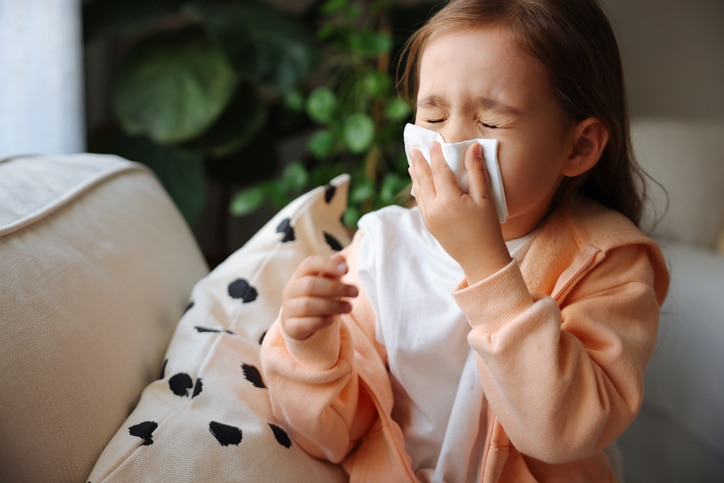When it comes to keeping kids healthy, pediatric allergies and asthma are two of the most common issues parents have to deal with. As a parent, you want the best for your child, so it’s essential to understand how to recognize the symptoms of these conditions and where to seek the best treatment.
With this guide from Allergy & Clinical Immunology Associates, you can learn more about the symptoms of these conditions and where you can seek proper diagnosis and treatment.
 What are the Symptoms of Pediatric Allergies?
What are the Symptoms of Pediatric Allergies?
The signs of pediatric allergies can vary depending on the type. Common symptoms include sneezing, runny nose, coughing, wheezing, and itchy eyes or skin. In some cases, your child may experience anaphylaxis – a reaction that is potentially life-threatening and requires immediate medical attention. If your child is having any difficulty breathing or appears to be having a severe reaction, seek emergency medical assistance.
What are the Symptoms of Pediatric Asthma?
Pediatric asthma is typically characterized by wheezing, coughing, and difficulty breathing. It can also cause chest tightness and shortness of breath. If your child has persistent symptoms that seem to recur in certain situations, such as at night, outdoor activity, or exposure to specific triggers (such as animals), they may be experiencing asthma.
Options for Diagnosing and Treating Pediatric Allergies and Asthma
Fortunately, there are many options available to diagnose and treat pediatric allergies and asthma. One of the best places for parents to begin is by consulting with a board-certified Pittsburgh pediatric allergy doctor who specializes in treating these conditions in children. At Allergy & Clinical Immunology Associates, our qualified physicians will be able to accurately diagnose the issue and recommend an appropriate course of treatment.
To diagnose asthma, we will typically have your child take a lung function test, which measures how much air they breathe in and out and how quickly they can breathe. A chest x-ray, blood test, and sputum test may also be used.
For diagnosing food allergies, we may use tests such as blood tests, skin prick tests, or oral food tests. The skin prick test uses a small needle to insert extracts of potential allergic food underneath your child’s skin. Irritation at the site likely indicates an allergy to that food.
When it comes to seasonal allergies, the doctor will discuss the symptoms your child is experiencing as well as their medical history. A skin prick test or blood test may also be used to diagnose seasonal allergies.
For seasonal allergies, we utilize a treatment called immunotherapy. This involves giving the patient gradually increasing doses of allergens over a period of several months or years to build up a tolerance. We may also recommend antihistamines and other medications, depending on your child’s age and any existing conditions they have.
For treating pediatric asthma, we will typically prescribe preventative medications such as bronchodilators or inhaled corticosteroids. In more severe cases, oral corticosteroids or anti-inflammatory drugs may be necessary. We will also recommend lifestyle and environmental changes to reduce the risk of asthma attacks. Therapy is another asthma treatment where your child can learn breathing exercises and relaxation techniques to manage symptoms.
In some cases, lifestyle changes such as allergen avoidance may also be recommended in order to reduce exposure and minimize the risk of an allergic reaction. Each case is unique, so we will evaluate your child’s symptoms and recommend the best course of action to manage and treat their condition.
Schedule Your Asthma or Allergy Appointment Today!
It’s essential for parents to remember that pediatric allergies and asthma can be managed with proper medical care and treatments. If you’re concerned about your child’s condition, contact Allergy & Clinical Immunology Associates today for an appointment.